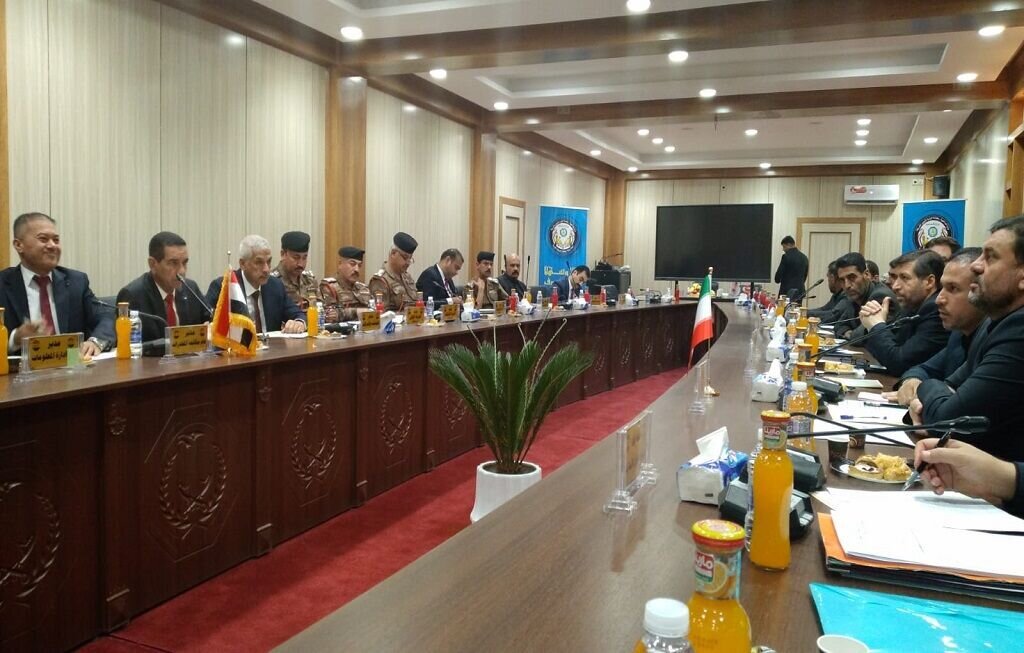Tehran, Baghdad to share anti-narcotics experience

TEHRAN- Iran and Iraq anti-narcotics police emphasized the need to strengthen regional stability and develop bilateral cooperation in combating drug trafficking by sharing experiences.
A joint meeting between the anti-narcotics police chiefs of the two countries was held at the police headquarters of Karbala province with the Iraqi Interior Minister, Abdul Amir Al-Shammari, the Iraqi anti-narcotics police chief, Ahmed Al-Zarkani, and the Iranian anti-narcotics police chief, Iraj Kakavand, in attendance.
The two sides stressed the exchange of information on monitoring drug transit between the two countries and discussed possible ways to deal with drug trafficking and smuggling.
The Iranian official explained Iran’s anti-narcotics police measures and activities in the fight against drugs, saying: “The Islamic Republic of Iran is at the forefront of combating drug trafficking and transit which is mostly imported from eastern countries.
The proof of this claim is about 4 thousand martyrs and more than 12 thousand veterans in this battle.”
Referring to the capabilities of Iran's anti-narcotics police, he announced the country's full readiness for cooperation with Iraq in this field.
Ahmed Al-Zarkani, head of Iraq's anti-narcotics police, emphasizing the need to reinforce cooperation with Iran's anti-narcotics police, announced Iraq’s readiness to hold specialized training courses by Iran's anti-narcotics police for the police officers in Iraq.
Iran at the forefront
In June, Alexander Fedulov, the United Nations Office on Drugs and Crime (UNODC) Iran Country Representative, said Iran should provide other countries of the world with its experiences in dealing with narcotics.
“The successful experiences of Iran’s anti-narcotics police in the field of combating drug transit should be made available to all countries in the region and the world in different ways,” he added.
The international community, while becoming more familiar with the countermeasures of the Islamic Republic of Iran, should provide more support for the fight against narcotics in this country, the UNODC official stressed.
Fedulov referred to the strengthening of the Joint Planning Cell (JPC) and conducting joint activities with other countries in the fight against drug trafficking as effective countermeasures and emphasized the need to boost cooperation.
Kakavand, for his part, said the Islamic Republic of Iran has always been decisive and serious in the field of dealing with narcotics at the regional and global levels.
“Since the country is at the forefront of the fight against narcotics, the level of support from UNODC and the international community should be proportionate to the activities and actions at the regional and global level.”
The UNODC Office attaches special importance to the regional and global role of the Islamic Republic in the fight against narcotics, and the discovery of narcotics by the law-enforcement forces of Iran shows the country’s efforts with the United Nations beyond the regional level, Fedulov explained.
“UNODC's current counter-narcotics program includes "Border Management and Trafficking", "Drug Prevention, Treatment, Rehabilitation, and HIV Care" and "Alternative Development and Sustainable Livelihoods", ISNA reported.
MT/MG
Leave a Comment